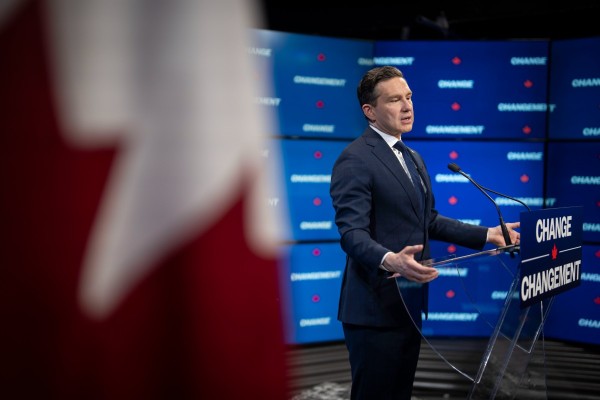The Occupation of Lockheed-Martin Halifax
“Do you want to ‘push the envelope’ and achieve something really significant?” the world’s largest weapons maker asks college students in its recruiting propaganda. “At Lockheed-Martin, we are in the constant pursuit of new ideas–and we move beyond accepted boundaries.”
A group of students and community members in Halifax took Lockheed at its word; before the invasion of Iraq they pushed the accepted boundaries of protest and occupied Lockheed’s office in an action of non-violent civil disobedience. On February 6th, six occupiers, who took up their own defense, were found guilty of ‘mischief ’ in a Dartmouth, Nova Scotia Court.
However the judge, who seemed sympathetic to the cause, ordered an “absolute discharge”– meaning the activists will receive no punishment for one of the most important and underreported actions of the anti-war movement.
“We wanted to insist that it would not be ‘business as usual’ for the economic elite while an illegal and immoral war was about to be mounted on their behalf,” said Adam Squibb, a young activist now residing in Newfoundland. “Our action against Lockheed Martin was to highlight the economic aspects of war,” he said. Squibb and many of the other occupiers are active in anti-globalization circles opposing the FTAA, WTO and other neoliberal institutions.
The occupation began at 9 a.m. on Monday, February 17th, 2003, when eleven activists locked themselves together, attempting to shut down Lockheed’s operations for a full business day, while drawing attention to a corporation with 26.5 billion dollars in 2002 sales from weapons like the Bradley fighting vehicle propulsion system, the C130 Hercules Cargo Plane and the F16 Fighter jet–the world’s most ‘popular’ combat aircraft.
The mainstream media avoided the trial altogether, but occupiers have been doing interviews on community radio to spread the message about Lockheed and corporate globalization. “Awareness was the biggest goal of the action,” said Mike Parks, a Halifax-based activist who was arrested during the occupation. “Nobody really knew that Lockheed-Martin had an office in Dartmouth,” he said.
To the inevitable chagrin of company insiders and others, awareness about Lockheed is growing. Non-Governmental Organizations, including the Council of Canadians, have lambasted the federal government for awarding the corporation a $20.5 million contract to conduct the national census; a scary thought for Canadians who don’t want the world’s largest weapons maker having access to their personal information.
The post 9-11 era has done wonders for Lockheed’s bottom line; the company posted profits of $1.15 billion in 2002, along with a whopping $70 billion backlog of new order opportunities. (Lockheed-Martin fact sheet)
Connections Run Deep
The Bush administration has been chastised by activists on the left and right of the political spectrum for its close ties to Halliburton, Bechtel and other corporations who received no bid contracts for reconstruction in Iraq; Lockheed however hasn’t received the same amount of negative press, but their administrative connections run deep.
“I wrote the Republican Party’s foreign policy platform.” boasted Bruce P. Jackson, vice president of Lockheed-Martin between 1993-2001, at the Republican Convention in 2000.
Lynne Cheney, wife of Vice President Dick, served on Lockheed’s board, taking home $120,000 dollars per year. In 1997- 98 alone, Lockheed spent $10.2 million lobbying U.S. politicians.
Incestuous connections between the economic interests of military corporations and governments aren’t unique to the U.S. Lockheed must be tickled pink by Paul Martin’s plans to compromise world peace and the Intercontinental Anti-Ballistic Missile Treaty by signing onto the U.S. Starwars Program, with a price tag estimated at $60 billion.
In a report to investors, Lockheed calls the controversial missile defense shield an “Emerging Opportunity,” hawking its “target systems, boosters and other elements” to the U.S, and possibly Canadian, governments.
Lockheed occupiers continually stress the relationship between globalization and increased militarism and strangely enough the business elite in Canada and elsewhere don’t disagree.
In a report for the Polaris Institute, Steven Staples notes that The Conference of Defense Associates, a lobby group for the military industrial complex, produced a report arguing:
The defense establishment, including the Canadian Forces, plays a key role in an international policy which provides the insurance and means which allow the national interest to flourish. It contributes to stability at home and abroad, thus supporting the development of an environment of congenial trade.
Thomas Friedman, a New York Times columnist with huge political influence, takes the relationship between globalization and militarism a step farther:
“The hidden hand of the market will never work without a hidden fist. McDonald’s cannot flourish without McDonnell Douglas. And the hidden fist that keeps the world safe for Silicon Valley’s technologies to flourish is called the U.S. Army, Air Force, navy, and Marine Corps.”
Unlike most citizens, who want a sustainable and just economy, Lockheed-Martin sees “Emerging Opportunities” in “Privatization Initiatives and Partnerships,” two key hallmarks of corporate globalization.
The Martin government has made the clear decision to kowtow to companies like Lockheed in part because of the economic spinoffs. NAFTA and similar agreements have tremendously hurt Canada’s manufacturing sector, but the Liberals have a solution to our woes–military investment.
David Pratt, Paul Martin’s Minister of Defense and a whole hearted supporter of Starwars, wrote in the Ottawa Citizen that, “At a time when many jobs have been lost in weakened high technology sectors, new investment in defense and security offer tremendous opportunities for Canadian workers, companies and technologies.”
There are many political and economic problems with this logic–the most obvious being our economy will be dependent on the horrorific violence of perpetual war.
Activists like Squibb and Parks feel that the anti-war movement, for all its beauty and scope, didn’t make enough of the links between globalization and militarism. They feel Italian dictator Benito Mussolini had a solid understanding of current realities in political-economy when he said, “Fascism should more properly be called corporatism, as it is the merger of state and corporate power.”
As the global peace movement plans for a massive round of demonstrations on March 20th, commemorating the official start of war, and opposing the ongoing occupation of Iraq, Adam Squibb offers this advice, “The leaders of the world prove time and time again that they do not act based on how their constituents want them to. We want the anti-war movement to step up the level of resistance, to become pro-active, to stop begging and start demanding. The elite won’t alter their plans unless the people’s dissidence manifests itself in widespread disruption and inconvience.”
Chris Arsenault, a Halifax-based activist, is a frequent contributor to CD.
This article appeared in the March/April 2004 issue of Canadian Dimension .










